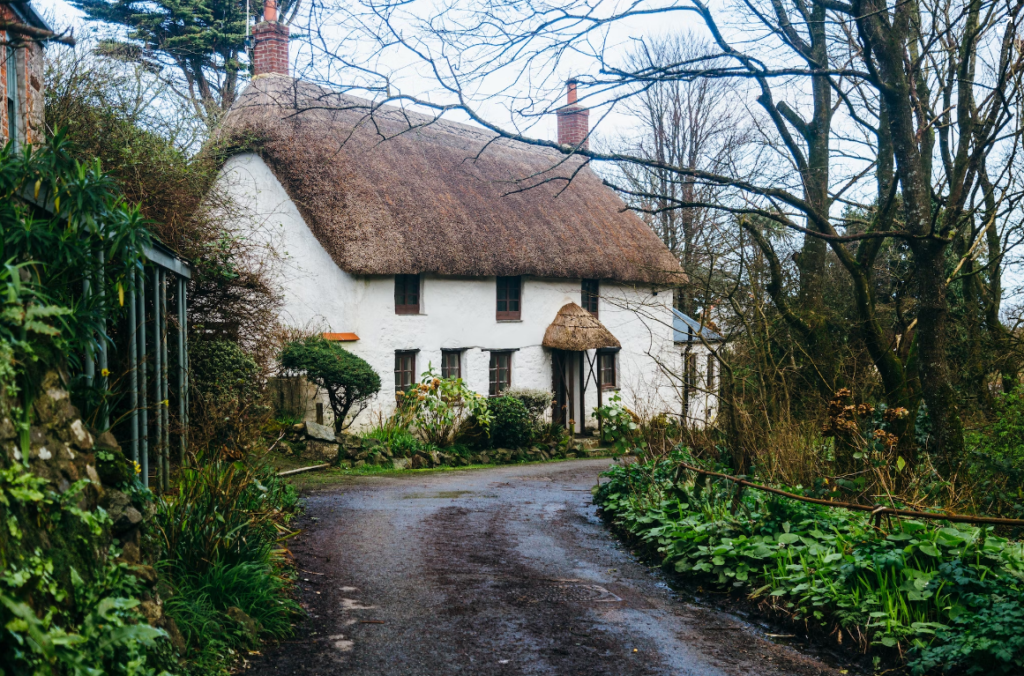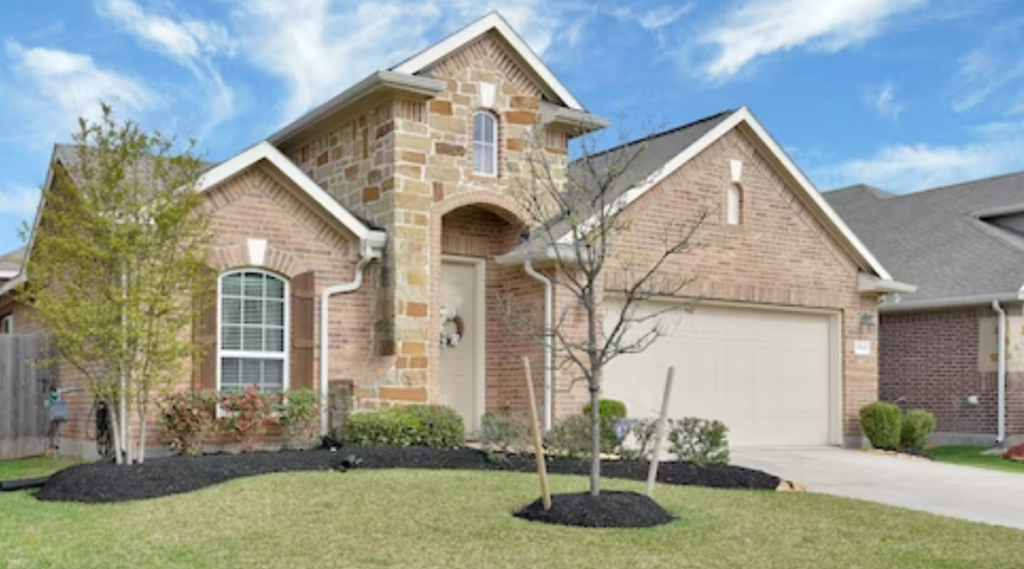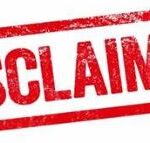Cottage property insurance quotes: Nestled by a serene lake or hidden amidst the woods, your cottage is a sanctuary, a refuge from the chaos of everyday life. It’s a place where cherished memories are etched and where families gather to escape the daily grind. However, like your primary residence, your cottage also deserves protection, and that’s where cottage property insurance comes into the picture. In this extensive guide, we’ll delve into the realm of cottage property insurance quotes, helping you comprehend the significance of securing your beloved retreat.

The Essence of Cottage Property Insurance
Cottage property insurance, sometimes referred to as vacation home insurance or seasonal property insurance, is a specialized insurance policy tailored to shield your cottage or vacation home. It offers coverage against an array of perils, ensuring that your tranquil retreat remains a source of relaxation rather than worry. Here’s why cottage property insurance is imperative:
1. Asset Safeguard: Your cottage is a valuable asset, representing a significant financial investment. Cottage property insurance safeguards this investment from unforeseen disasters.
2. Liability Coverage: Accidents can occur even in the most serene settings. If a guest is injured on your property or if you accidentally damage someone else’s property, the liability coverage within your cottage insurance policy can provide financial protection.
3. Peace of Mind: Knowing that your cottage is protected grants you the freedom to relish your time there without constant anxiety about potential risks. It ensures that your haven remains a place of tranquility.
4. Coverage Adaptability: Cottage property insurance can be customized to your specific needs. Whether your cottage is used year-round or seasonally, the policy can be adjusted accordingly.

Factors Influencing Cottage Property Insurance Quotes
When seeking cottage property insurance, several factors come into play, affecting the quotes you receive. Understanding these elements is crucial for accurately estimating the cost.
1. Cottage Location: The geographical location of your cottage significantly influences insurance costs. Cottages in regions prone to natural disasters, like coastal areas or wildfire-prone zones, may incur higher premiums.
2. Property Value: The value of your cottage and its contents impacts the insurance premium. A higher property value often leads to higher coverage costs.
3. Coverage Extent: The breadth of coverage you select affects the quote. Basic coverage typically includes protection against fire, theft, and liability, while additional coverage for specific risks, such as floods or earthquakes, will increase the premium.
4. Security Measures: Installing security features like alarms, smoke detectors, and security systems can result in lower insurance premiums, as they reduce the risk of damage or theft.
5. Proximity to Services: The distance of your cottage from the nearest fire department or hospital can influence the premium. Cottages in remote areas may have slightly higher insurance costs.
6. Usage Patterns: How often you use your cottage can also impact the premium. If it’s a seasonal property used only during certain months, insurers may offer specific policies tailored to seasonal use.
7. Claims History: Your history of previous insurance claims, both for your cottage and other properties, can affect the premium. Frequent claims may lead to higher insurance costs.

What Cottage Property Insurance Typically Covers
Cottage property insurance provides a comprehensive safety net, encompassing various types of coverage:
1. Dwelling Coverage: This protects the physical structure of your cottage, including walls, roof, and other structural components, in the event of damage from covered perils.
2. Personal Property Coverage: It covers your personal belongings kept at the cottage, such as furniture, appliances, electronics, and more. Be sure to specify valuable items like artwork or jewelry that may require additional coverage.
3. Liability Protection: Liability coverage shields you if someone is injured on your property or if you cause damage to someone else’s property.
4. Additional Structures: Coverage may extend to other structures on your property, such as boathouses, garages, or guest cottages.
5. Loss of Use: If your cottage becomes uninhabitable due to a covered peril, this coverage helps with temporary living expenses while repairs are made.
6. Medical Payments: It covers medical expenses if someone is injured on your property, regardless of liability.
7. Optional Coverages: Depending on your needs, you can opt for additional coverage like flood insurance, earthquake insurance, or coverage for specific recreational equipment like boats or ATVs.
The Process of Obtaining Cottage Property Insurance Quotes
Securing cottage property insurance starts with obtaining quotes from insurance providers. Here’s how to go about it:
1. Determine Your Needs: Assess the value of your cottage, the possessions you want to cover, and any specific risks associated with your location or usage patterns.
2. Research Insurance Providers: Look for insurance companies that offer cottage or vacation home insurance. You can start with your current insurance provider or seek recommendations from cottage-owning friends.
3. Request Quotes: Reach out to multiple insurance providers to request quotes. Provide them with accurate information about your cottage and coverage requirements.
4. Compare policies: Once you receive quotes, compare them carefully. Pay attention to coverage limits, deductibles, and any optional coverage offered.
5. Ask Questions: Don’t hesitate to ask questions about the policy, especially if there are terms or conditions you don’t fully understand.
6. Consider Discounts: Inquire about any available discounts. Some insurers offer discounts for bundling multiple policies or installing security features.
7. Review the Fine Print: Before making a decision, carefully review the terms and conditions of the policy to ensure it aligns with your needs.
8. Make Your Choice: Select the policy that best meets your requirements and budget.
Frequently Asked Questions About Cottage Property Insurance
- Is cottage property insurance mandatory?
- Cottage property insurance is not typically mandatory by law, but it’s highly recommended to protect your investment.
- Can I use my primary home insurance for my cottage?
- While it’s possible to extend your primary home insurance to cover your cottage, it’s advisable to have a separate policy tailored to the unique risks of your cottage.
- What happens if I rent out my cottage?
- If you rent out your cottage, you may need additional coverage, such as landlord insurance, to protect against potential liabilities associated with renters.
- Is flood insurance necessary for my cottage?
- If your cottage is located in a flood-prone area, it’s highly recommended to obtain flood insurance, as it’s often not covered by standard cottage property insurance.
- Can I adjust my coverage during the off-season when I’m not using the cottage?
- Yes, you can often adjust your coverage during the off-season to reduce costs. However, be sure to maintain adequate coverage to protect against risks like fire or theft.
Conclusion
Cottage property insurance quotes mark the first step in ensuring that your cherished retreat remains a place of relaxation and tranquility. By comprehending the factors influencing insurance costs, the types of coverage available, and the process of obtaining quotes, you can make informed decisions to safeguard your cottage from unexpected perils. Remember the peace of mind that comes with cottage property insurance.
FAQ
1. What are cottage property insurance quotes?
These are rough numbers from insurance companies telling what you might pay to cover your cabin. They include protection if there’s a fire or someone steals something. Also included is the repair cost after storms mess things up. On top of that, they factor in legal responsibility stuff.
2. Why do cottage insurance quotes vary so much?
Prices shift depending on where it is, the cabin’s age, what it’s made of, how many folks stay there, past claims, and also dangers near water or woods.
3. How can I get the cheapest cottage insurance quote?
Look at several insurance options, and raise what you pay upfront. Combine house and cabin coverage instead. Put in security gadgets like alarms or cameras—this helps lower costs. Keep your place in good shape all year round.
4. Do seasonal cottages cost more to insure?
Yep, holiday cabins usually come with higher prices since they sit empty a lot—this raises the chances of break-ins or leaks. Plus, storms can cause trouble when no one’s around to check things.
5. What information do I need for a cottage insurance quote?
You’ll want info on where the cottage sits, how big it is, and what kind of structure it is—also, check the heat setup. Then there’s when people stay there, what safety stuff’s in place—on top of that, look into past insurance issues.



